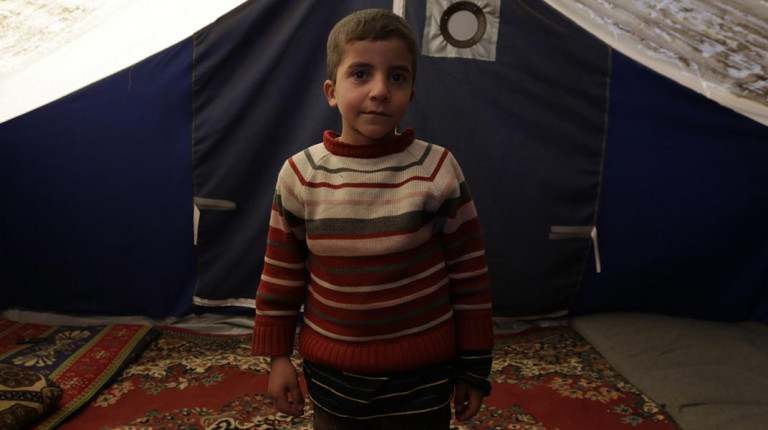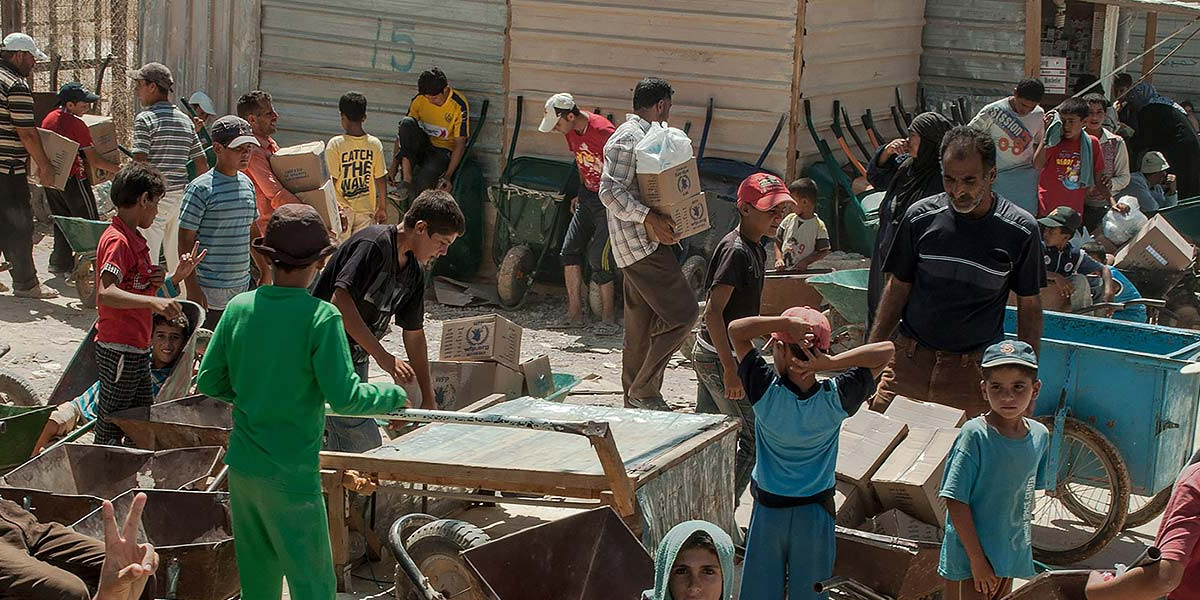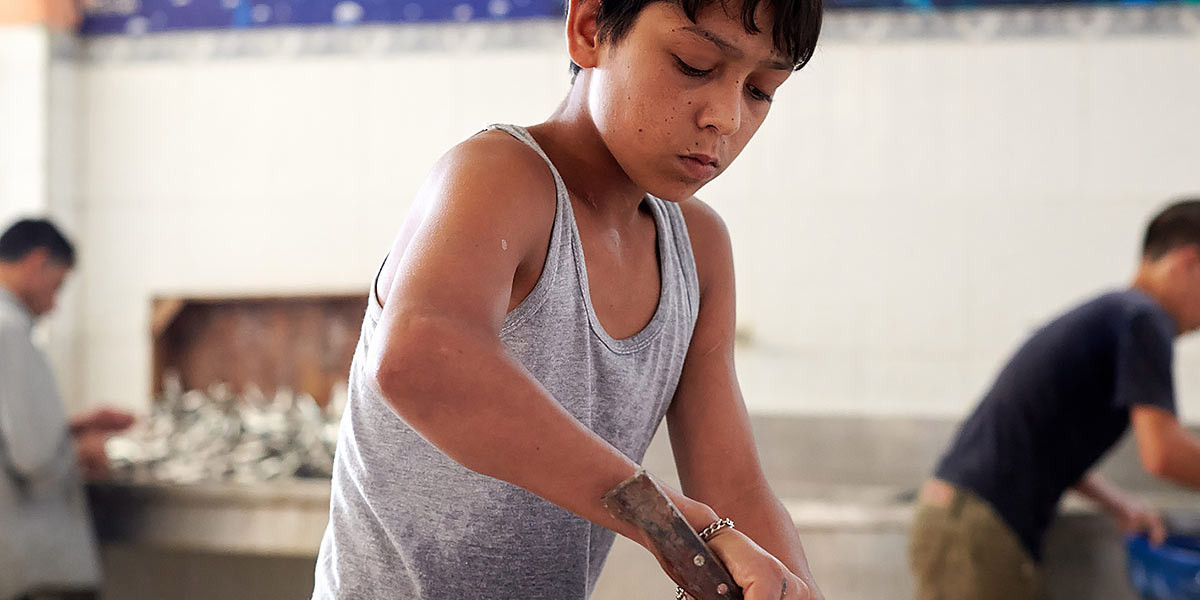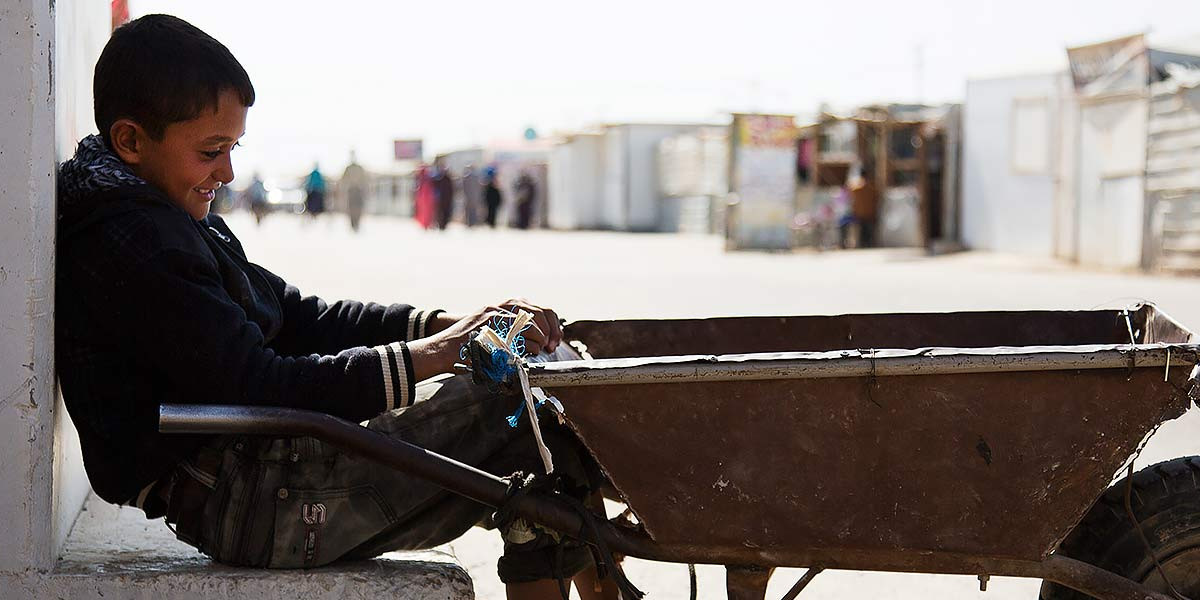As the impact of the Syria crisis spreads across the region, the number of children and adolescents who carry the burden of supporting their families is steadily increasing.
Replacing adults as the main family breadwinners, more and more children are toiling for long hours with little pay, often in dangerous and unhealthy conditions.
In nearby Lebanon, in a makeshift camp in the agricultural hinterland of the Bekaa Valley, a boy chops wood under the watchful eye of his grandmother.
Karim is a child refugee from Syria. He has not been to school in over two years. Instead he chops wood to help his family survive.
Ever since the conflict in Syria broke out more than four years ago, there has been a startling increase in the number of Syrian children being pushed out of school and into exploitative forms of work, their education replaced by months of toiling in the fields in order to provide for their families.
Child labour is directly linked to the basic survival of refugee families. Many Syrian families fled with only what they could carry–a change of clothes; precious documents or photos; and for some, a baby or toddler who could not walk long distances through fields or across borders.
The savings, assets and possessions of most Syrian refugees were lost or destroyed, and livelihoods came to an abrupt end.
As families fall apart, children like Karim, some as young as seven, must work long hours for little pay to help support their families.
Child labour is illegal in Lebanon and Jordan, but children are commonly taking menial work for low pay. Their meagre wages are sometimes the family's only source of income.
It is estimated that one in 10 Syrian refugee children in the region is engaged in child labour. In Jordan Valley, 1,700 out of 3,500 school-aged children (nearly 49%) were working.
Children are increasingly exploited as cheap labour by employers who abuse their desperate situation, paying them as little as half the wage an adult would receive for the same job.
During harvest season, many of the boys and girls in the camp will go to work at the nearby farms for as little as $2 (£1.30) a day, to harvest potatoes in Lebanon’s Bekaa Valley. Those working in shops and restaurants in Jordan typically earn between $4 and $7 a day, while a shoemaker’s assistant in Turkey might get $7 a week.
Before its disastrous plunge into crisis and armed conflict, Syria was a middle-income country capable of providing a decent living for most of its people. Almost all children went to school, and literacy rates were above 90%.
Four and a half years into the crisis, four out of five Syrians are estimated to be living in poverty some 2.7 million Syrian children are currently out of school, a figure swollen by children who are forced to work.
In areas such as like Aleppo which have been devastated by nearly three years of war, enrolment is down to 6%, while half of all refugee children, who number over a million, are out of school. Four out of five refugee children in Lebanon, which hosts the largest number of refugees, do not have access to school.
Those who do are mostly in Lebanese public schools or study in makeshift tents near the informal camps that dot the Bekaa Valley, many skipping classes to work in the fields and earn money for their families.
Harmful work impacts children in different ways, but younger and inexperienced children tend to suffer disproportionately. Without decent working conditions and the correct protective equipment and clothing, children risk illness, injury or even death while working with heavy machinery or toxic chemicals in the blistering summer heat and the cold of winter. Around 22% of children working in the agricultural sector in Mafraq and the Jordan Valley have suffered injuries, of which around one third required medical treatment.
Save the Children estimates that Syrian children who did not complete primary school are likely to earn 32% less money in their first job than those who completed secondary school, and 56% less than those who finished university.
In addition, many working children are deprived of an education, as they have neither the time, nor the energy to attend school, due to the demands of their work. Dropping out of school puts these children at a life-long disadvantage, hindering their chances of getting decent work and escaping the cycle of poverty and exploitation.
There are nearly four million refugees outside Syria, mostly in Lebanon, Jordan, Turkey, Iraq and Egypt. In Lebanon, one out of every four residents is a Syrian who fled the war.
With inadequate aid funds, more people in need will have to resort to child labour or early marriage in a desperate bid for survival.
“I feel responsible for my family,” a 12-year-old refugee in Jordan says. “I feel like I’m still a child and would love to go back to school, but my only option is to work hard to put food on the table for my family.”





